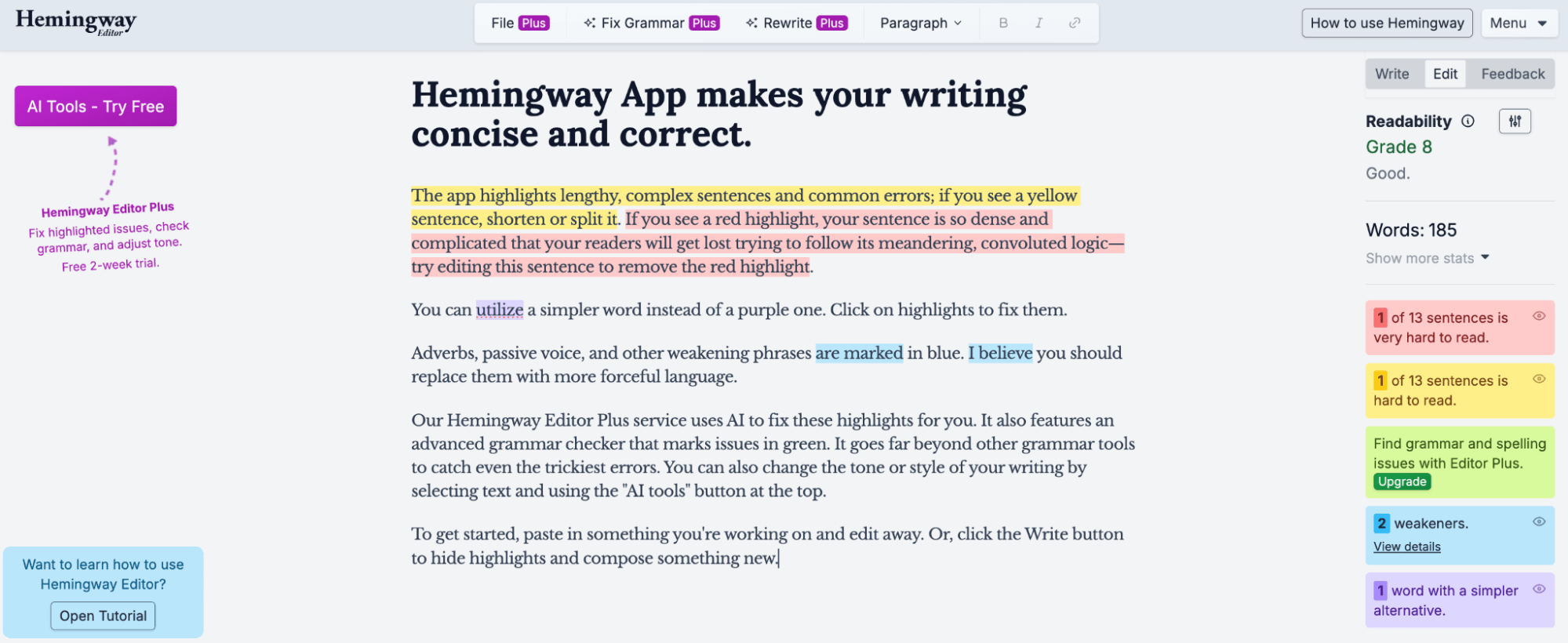Writing shapes every student’s academic journey, influencing performance in essays, timed exams, and even long-term career prospects. Yet, strong writing rarely happens by accident, it requires attention, patience, and ongoing effort.
This article explores why writing skills matter across disciplines, identifies who might benefit most from targeted support, and offers practical strategies to improve writing skills. It also addresses common hurdles students face and outlines how to overcome the dreaded writer’s block. With focused guidance and consistent practice writing, any student can transform their struggles into strengths and develop the confidence needed to write clearly, persuasively, and with purpose.
Why Writing Skills Matter for Every Student
Strong writing skills are essential across all areas of study. Whether composing essays, crafting research papers, assembling reports, preparing presentations, or submitting applications, students are constantly expected to communicate their ideas effectively.
Writing isn’t just about stringing words together, it directly affects academic performance and shapes how students express themselves in both written and spoken communication. Some learners, however, may face more challenges than others. International students often need time to adjust to academic English. Non-native speakers must overcome language barriers, and those with learning difficulties or limited exposure to reading and writing may struggle with structure and clarity. Still, with dedication and consistent English writing practice, every student can grow and become a more confident, capable writer.
How to Get Better at Writing
Improving writing takes time, but steady progress is possible with the right approach. The following tips offer realistic, effective strategies students can use to build confidence and skill.
Master the Fundamentals First
Grammar, punctuation, and sentence flow form the foundation of every strong piece of writing. Don’t skip the basics, even the best ideas fail without clear expression. Understanding how to improve writing skills starts here. Students can also benefit from tutors, campus writing centers, and online courses that offer structured guidance.
Use Technology to Your Advantage
Students can strengthen their writing by using online tools designed to teach structure, check grammar, and suggest improvements. These platforms make learning writing skills more accessible and interactive.
Grammarly: Real-Time Support for Better Writing

Grammarly is an AI-powered writing assistant that helps users improve grammar, spelling, and style in real time. It acts like a second pair of eyes, instantly catching errors in punctuation, phrasing, and structure. For students wondering how to write better, Grammarly offers additional tools like tone detection, vocabulary enhancement suggestions, and even a plagiarism checker.
These features promote not only cleaner writing but also smarter writing. By highlighting mistakes and offering explanations, Grammarly helps students understand their errors and avoid repeating them. It’s a practical way to build confidence and competence in academic writing, one correction at a time.
StudyPro: All-in-One Platform to Strengthen Writing

StudyPro is a powerful platform designed to support students through every stage of the writing process. It integrates AI-assisted writing, plagiarism checking, AI detection, outlining, and paraphrasing into one smooth, intuitive workflow.
For those looking for help with writing, StudyPro delivers structure, clarity, and speed. It empowers students to craft well-organized, high-quality essays while offering full control over style, formatting, and academic depth. Smart writing tools and instant editing features guide users toward stronger outcomes.
During its beta period, all core features are completely free. Whether a student is pressed for time or focused on how to improve your writing skills, StudyPro provides practical, comprehensive support to write efficiently and effectively.
Write with Clarity Using Hemingway Editor

Hemingway Editor is a writing tool designed to help students focus on clarity, simplicity, and readability. It highlights complex sentences, passive voice, and overuse of adverbs – elements that often make writing harder to follow. By offering real-time feedback, it encourages students to streamline their ideas and express them with precision.
The built-in readability score helps gauge how easy the text is to understand, while suggestions for simpler wording foster better habits over time. For anyone aiming to learn how to improve writing skills, Hemingway Editor is a practical resource that transforms dense, confusing drafts into clean, engaging, and reader-friendly writing.
These tools offer practical ways to improve writing skills for students. Grammarly ensures grammatical accuracy, Hemingway Editor boosts clarity and readability, and StudyPro supports the entire writing process, helping students learn, write better, and complete polished assignments efficiently with a free, all-in-one platform.
Build Skill Through Regular Writing Practice
Consistent writing practice builds lasting improvement. Set daily or weekly goals, nothing too big, just enough to create momentum. Try journaling, blogging about favorite topics, or summarizing readings. Even 10 minutes a day adds up, strengthening expression, clarity, and confidence over time. Small steps lead to real growth.
Read to Write Better
Reading widely is essential for improving writing skills. It exposes students to new vocabulary, sentence patterns, and writing styles. Academic texts teach structure and formality, while creative works inspire voice and rhythm. Highlight phrases, mimic sentence structures, and reflect on what works – active reading sharpens both comprehension and expression.
Trust the Writing Process
Effective writing involves multiple stages: brainstorming, drafting, revising, editing, and proofreading. Embracing these steps is essential for growth. To practice writing effectively, create outlines, break tasks into mini-deadlines, and seek feedback through peer reviews. Rewriting isn’t failure, it’s a sign of commitment to stronger, more polished work.
Learn Through Feedback
Feedback is essential for improving your writing, even if you’re already confident. Ask teachers, peers, and tutors, or join online communities for input. Be specific, ask clear questions and stay open-minded. Use feedback to spot patterns, apply useful suggestions, and turn mistakes into learning opportunities that strengthen future writing.
Set Goals and Track Progress
Goal-setting is key to staying focused on how to write better. Use SMART goals, try writing daily, learning new words weekly, or finishing essay sections on schedule. Track progress with journals or apps, reflect weekly and celebrate milestones to stay motivated.
Common Challenges in Writing and How to Overcome Them
Many students struggle with developing strong writing skills because of recurring obstacles that can be frustrating but are entirely solvable. A lack of ideas or inspiration often blocks progress. To overcome this, try brainstorming with mind maps or freewriting. Breaking the topic into smaller parts can also make it easier to approach.
Poor organization and structure are another hurdle. Creating a detailed outline beforehand and using topic sentences with transitions can give the writing a clear flow. Grammar and punctuation mistakes are common as well. English writing practice and grammar tools will help catch errors, but it’s also important to review corrections and learn from them.
Time management is a major challenge. Procrastination can be avoided by breaking assignments into smaller parts and using techniques like the Pomodoro timer to stay on track. Fear of criticism or perfectionism can be paralyzing, yet students should remember that writing is a process. Sharing drafts with trusted readers and focusing on progress over perfection builds confidence.
One of the most persistent obstacles is writer’s block: the inability to start or continue writing. Don’t wait for perfect ideas. Begin with freewriting, shift your environment, and set short, timed sessions. Writing practice, even in small doses, helps improve writing skills consistently.
Final Thoughts on Building Better Writing Habits
Strong writing skills are vital for academic achievement, clear communication, and long-term success. Understanding how to improve your writing starts with taking action. By practicing regularly, using smart tools, welcoming feedback, and facing challenges directly, students can grow into confident, capable writers. Small steps, like setting realistic goals, joining writing groups, or exploring platforms like StudyPro, create steady progress over time.
Writing doesn’t have to be a source of stress. With commitment and the right strategies, any student can turn writing into a lasting strength that supports success in school and beyond. Start now, and let every word sharpen your skills.


